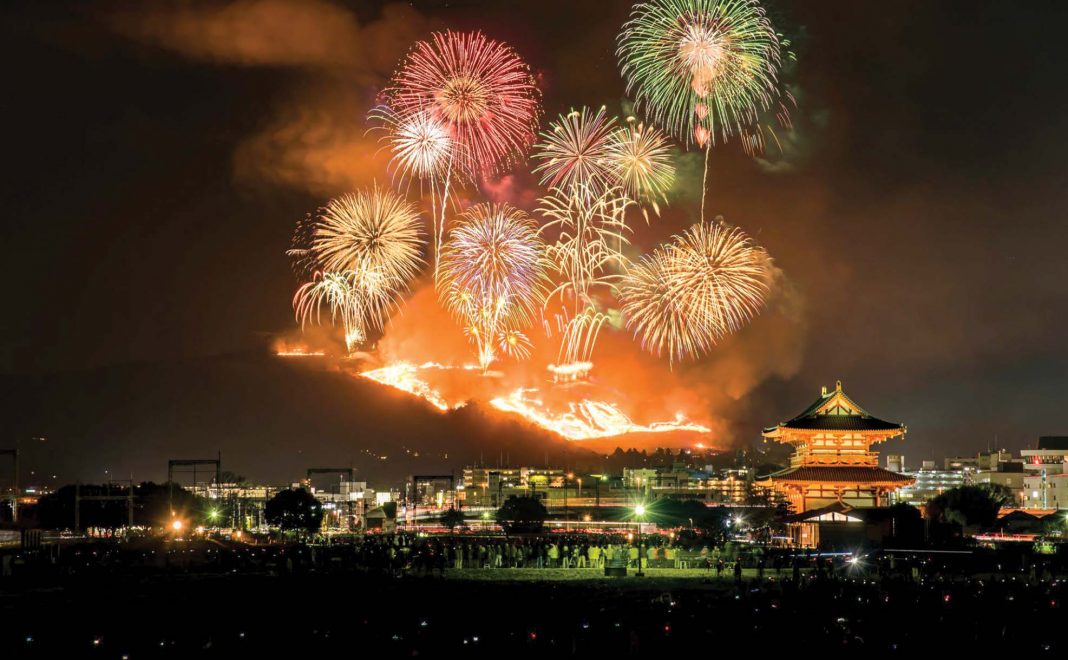Wakakusa Yamayaki – Japan

The name of the festival literally translates as ‘The Mountain Roast’ and is where on the 4th Saturday in January each year, the dead grass on the hillside of Mount Wakakusayama is set ablaze – but until after one epic fireworks display. There are two theories of the evolution of the festival. The first claims that the burning of the mountainside began during boundary conflicts between Nara’s great temples (Todai-ji and Kofuku-ji), while another claims the fires were used to drive away wild boars. Once set ablaze the mountain can burn for up to an hour and because of the mountains elevation it can be seen from anywhere in the city.
Where: Nara, Japan • When: 4th Saturday in January 2019
Stars Of The White Nights – Russia

White Nights isn’t really one festival but a collection of events around the longest days of
the year, from mid-May to mid-July. This festival is an extravaganza of the arts — music, opera, ballet, film and outdoor celebrations including the Scarlet Sails, a fleet of red-
sailed, tall ships with a gunpowder-packed fireworks show, Russian style. Long walks along the River Neva in almost constant daylight reveal roving gypsy bands, jugglers, sword swallowers, fire eaters,even stoic Russian mimes who might surprise you with their humor.
Where: St Petersburg – Russia • When: May 2019 TBC
Sky Lantern Festival – Taiwan

According to the elders of Pingxi, the Sky Lantern Festival originated in the Xing Dynasty, more than two thousand years ago. At that time, bands of outlaws frequently raided the lowland villages, forcing residents to seek refuge in the mountains. Village watchmen used “fire balloons” as signals to inform the residents that their houses were safe once again and when those hiding in the hills saw the celestial flares, they knew it was time to go home. Today these lanterns have two main purposes. One: they display scribbled messages of the hopes and dreams of the purchaser who then release them into the night sky by the power of fire; and Two: they represent the end of the Chinese New Year period and their release symbolizes the shedding of outdated ways and embracing the future.
Where: Pingxi, Taiwan – Republic of China
When: 2 March 2019
Diwali – INDIA

I happened to visit India during the Diwali celebrations. Known as the “Festival of Lights”, the Diwali is supposed to last for about five days and consists in exchanging gifts, burning butter and oil lanterns, and in fireworks.
In fact, it actually lasts more than the official five days, and it is incredibly noisy, with fireworks exploding literally anywhere – so much so that the already dramatic pollution levels of India increase further.
Most Indians take their holidays during Diwali, or right after. Cities can get incredibly crowded with internal tourists – but the atmosphere is incredible!
One of the best festivals in the world!
Where: Mumbai – India
When: 19 – 23 October 2019













